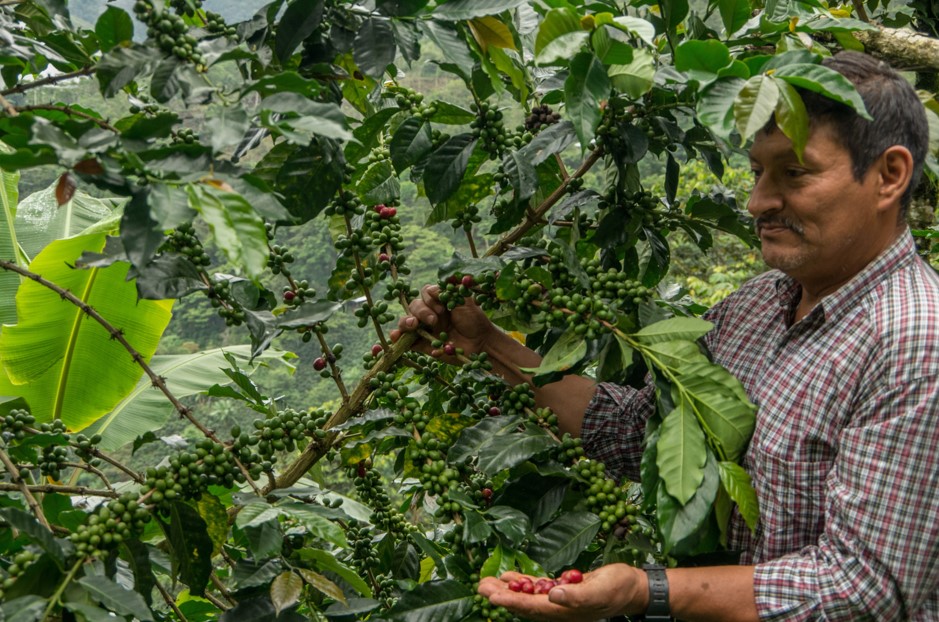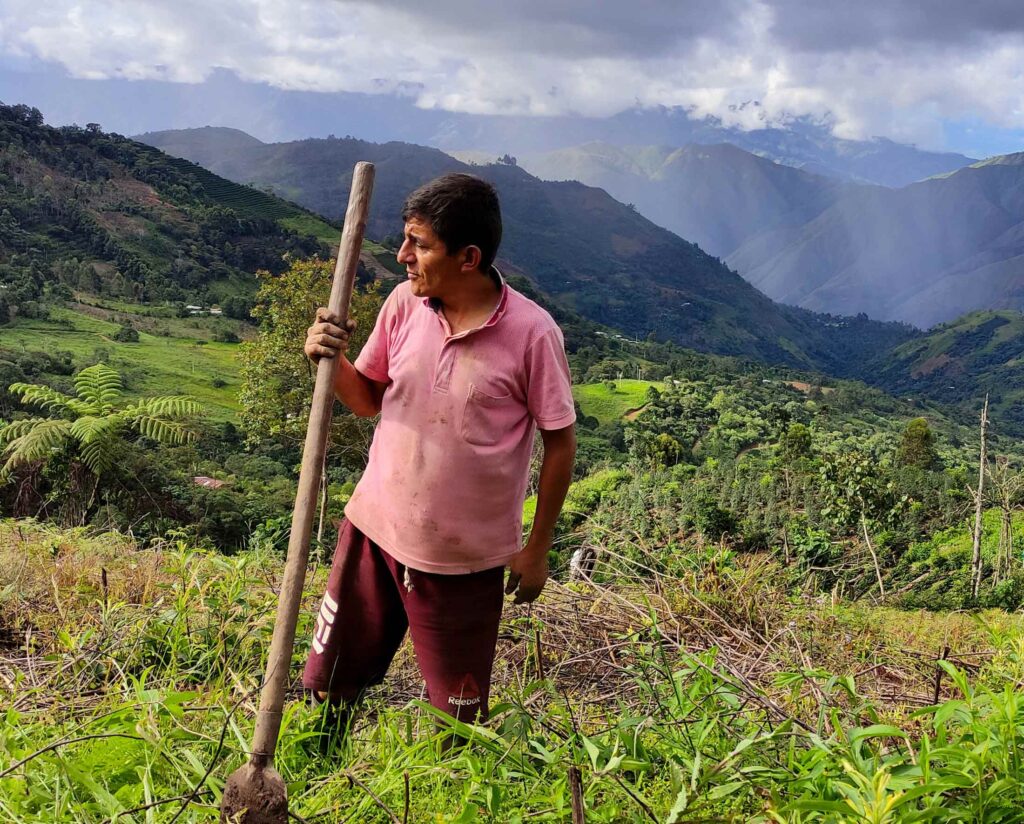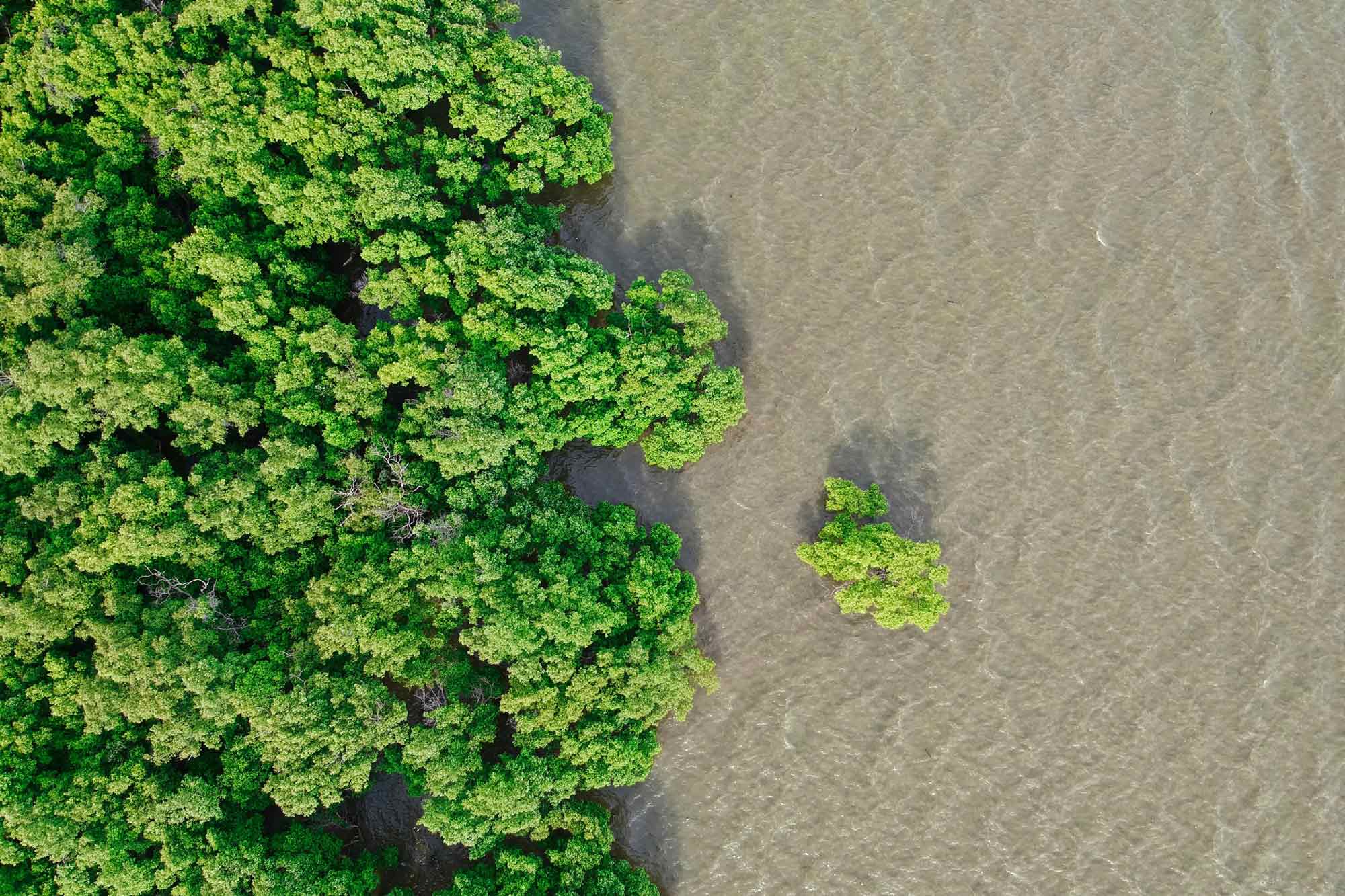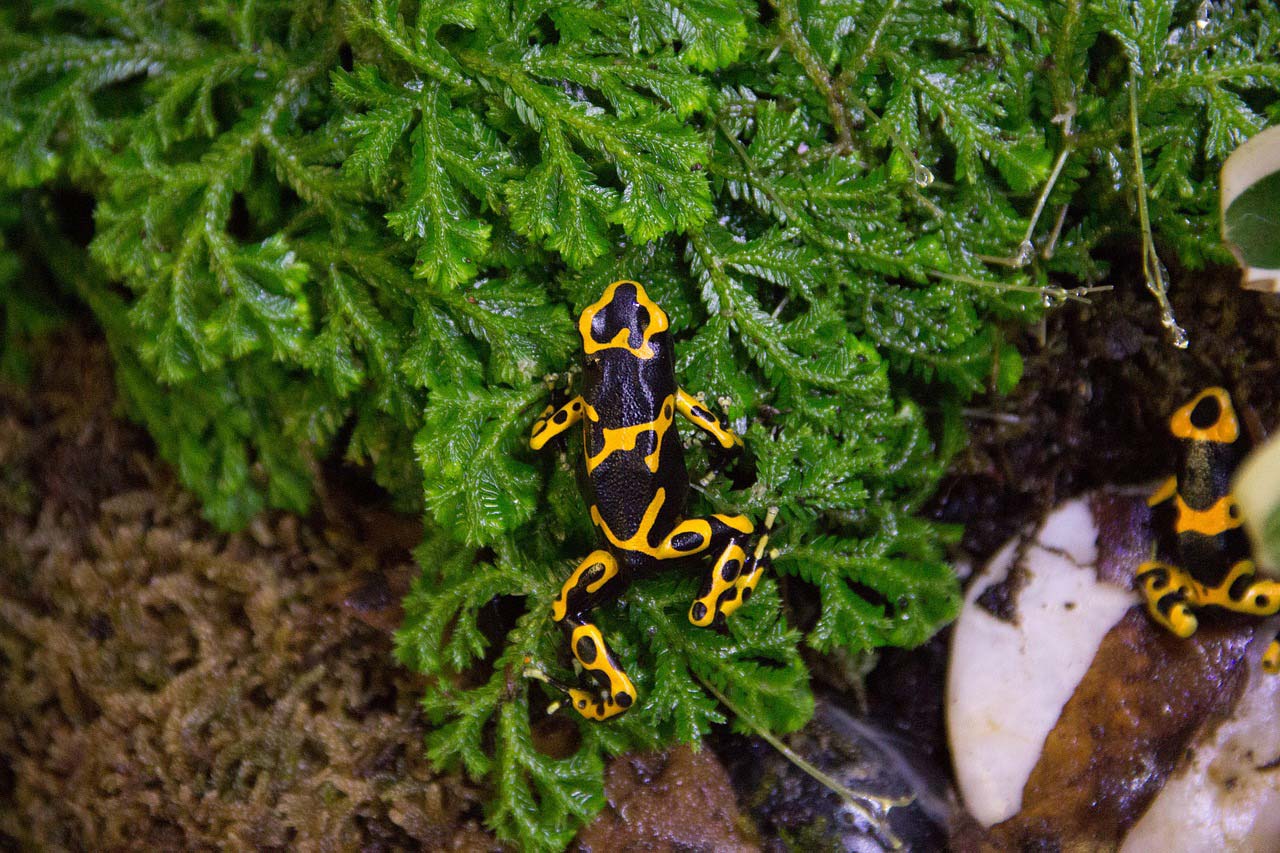Global demand for coffee is a driving force of tropical deforestation. With small-holder farmers producing 60% of the world’s coffee, new funding models are required to support small-holders to transition to sustainable agricultural practices that protect forests, restore degraded lands, maintain healthy waterways, enhance biodiversity and drive local economic development at scale.
Ecotierra is an agroforestry developer working directly with farming cooperatives to strengthen the economic resilience of small-holder producers by increasing product transparency and traceability, creating local jobs and working to increase household incomes while contributing to global climate and biodiversity goals. The Restoration Seed Capital Facility (RSCF) is supporting Ecotierra to expand its activities and enhance its environmental and social impacts (E&S) by providing grant finance for pipeline and project development. To date, Ecotierra has used the grant funds to support its Urapi Sustainable Land Use fund in Latin America.
The Café Selva Norte project in northern Peru is one example of Ecotierra’s cooperative-based approach, which aims to strengthen climate resilience and improve rural livelihoods by providing micro-credit and training for farmers to sustainably transition to productive coffee agroforestry systems, providing reliable and diverse revenue streams to producers through coffee and carbon credits sales agreements.
With a total investment value of USD 14.7 million, the Café Selva Norte project aims to engage with 3,000 producers, convert 8,250 hectares of land to sustainable agroforestry, conserve 200,000 hectares of forests and reduce carbon emissions by 3.8 million tons. Supporting cooperatives to transition to a more environmentally sustainable production model enables Ecotierra to create positive E&S impacts at scale across the small-holder coffee farmer community.

Carmen Herrera Peralta is a member of the Juan Marco El Palto “JUMARP” Cooperative, a group of over 300 farmers based in Peru’s northern region where the Andes connect with the Amazon forest. Mr Herrara Peralta has been a beneficiary of the Café Selva Norte project since 2019. Like most farmers in the cooperative, Mr Herrera Peralta’s family have been producing coffee for generations, “I was born as the son of coffee producers and I have been producing it for many years,” he said. Due to soil degradation, reduced productivity and quality and pests and diseases vulnerability that affects conventional coffee agriculture, farmers like Mr. Herrera require financial and technical support for soil restoration and transitioning to more sustainable methods of production based on traditional shade-grown practices.
In 2019, Café Selva Norte provided financial and technical support to 89 members of the JUMARP Cooperative to introduce new agroforestry systems to restore degraded soil and renew existing coffee crops. With the support, the farmers transitioned to new seed varieties that are more adapted to the climate and altitude of the farms. The new crops consistently produce specialty quality coffee and are of higher market value.
According to Mr Herrera Peralta, “many farmers see the benefits of coffee with higher cupping quality, how the trees and soil are protected and how other birds arrive. The new coffee varieties have given us a better quality of life because we get paid more, also the leaves of the planted trees fall to the ground, decompose and generate organic matter that improves the soil. Before we had to deal with lots of plant diseases, however, the new varieties are more resistant to pests and diseases. We no longer suffer much from pests because of the improved seed,” he said.

For Mr Herrera Peralta, the multiple benefits of transitioning to more sustainable agroforestry production practices are evident, “[after the introduction of agroforestry practices] the lands are better, I get paid better and we have a better quality of life. There are abandoned lands that are not used for planting coffee that have now been used to plant forests… There are people who have a better house, this can help with the education of their children and help to live a little better…there are colleagues who were not beneficiaries of this project and now want to join.”
The Café Selva Norte project aims to contribute to improving the quality of life of cooperative producers. A key element to achieving this is providing farmers with the training and technical assistance required to shift established practices. “We receive benefits from Café Selva Norte in training, they give workshops on tree pruning, they advise us on the moment in which we need to fertilize the soil, they also provide facilities to bring more seeds. I hope the support through these projects continues, there are colleagues who also want to benefit. We want to see more projects,” said Mr Herrera Peralta.
In order to expand this approach, firms such as Ecotierra need more practical financial solutions to support small-holder farmers to transition to sustainable production practices at scale.
RSCF’s support to the URAPI fund is enabling Ecotierra to expand its model to more cooperatives, helping them to transition to sustainable agricultural practices with improved environmental and livelihood outcomes.





